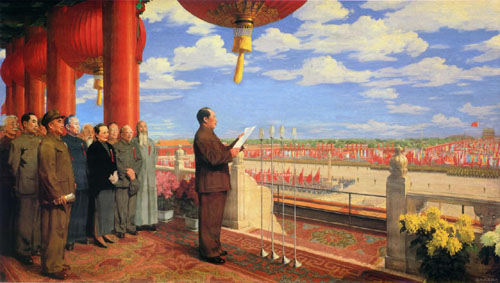Why and How the CPC Works in China
 0 Comment(s)
0 Comment(s) Print
Print E-mail
China.org.cn, June 30, 2011
E-mail
China.org.cn, June 30, 2011
Chapter 1: Why Was the CPC Capable of Establishing a New China?
On October 1, 1949 the People's Republic of China was founded. It was only three years and three months after the Chinese Civil War (1946-1949) between the KMT and the CPC broke out. When the war began, none of the CPC, the KMT, the United States, the Soviet Union and other countries expected that the end would come so fast, because the CPC was much weaker than the KMT.
Various parties were looking for a convincing answer, but from different perspectives of analysis they made different interpretations. It could be said that the benevolent saw benevolence and the wise saw wisdom, but the parties had a common understanding that the popular support of the people finally decided the outcome of the war.
As Dean Acheson, US Secretary of State, wrote in a letter to President Truman on July 30, 1949, "their [Kuomintang] seeming strength was illusory and their victories were built on sand… The reasons for the failures of the Chinese National Government appear in some detail in the attached record.
They do not stem from any inadequacy of American aid… the Nationalist armies did not lose a single battle during the crucial year of 1948 through lack of arms or ammunition. The fact was that the decay which our observers had detected in Chungking early in the war had fatally sapped the powers of resistance of the Kuomintang… The Nationalist armies did not have to be defeated; they disintegrated. History has proved again and again that a regime without faith in itself and an army without morale cannot survive the test of battle…the heart of China is in Communist hands."




